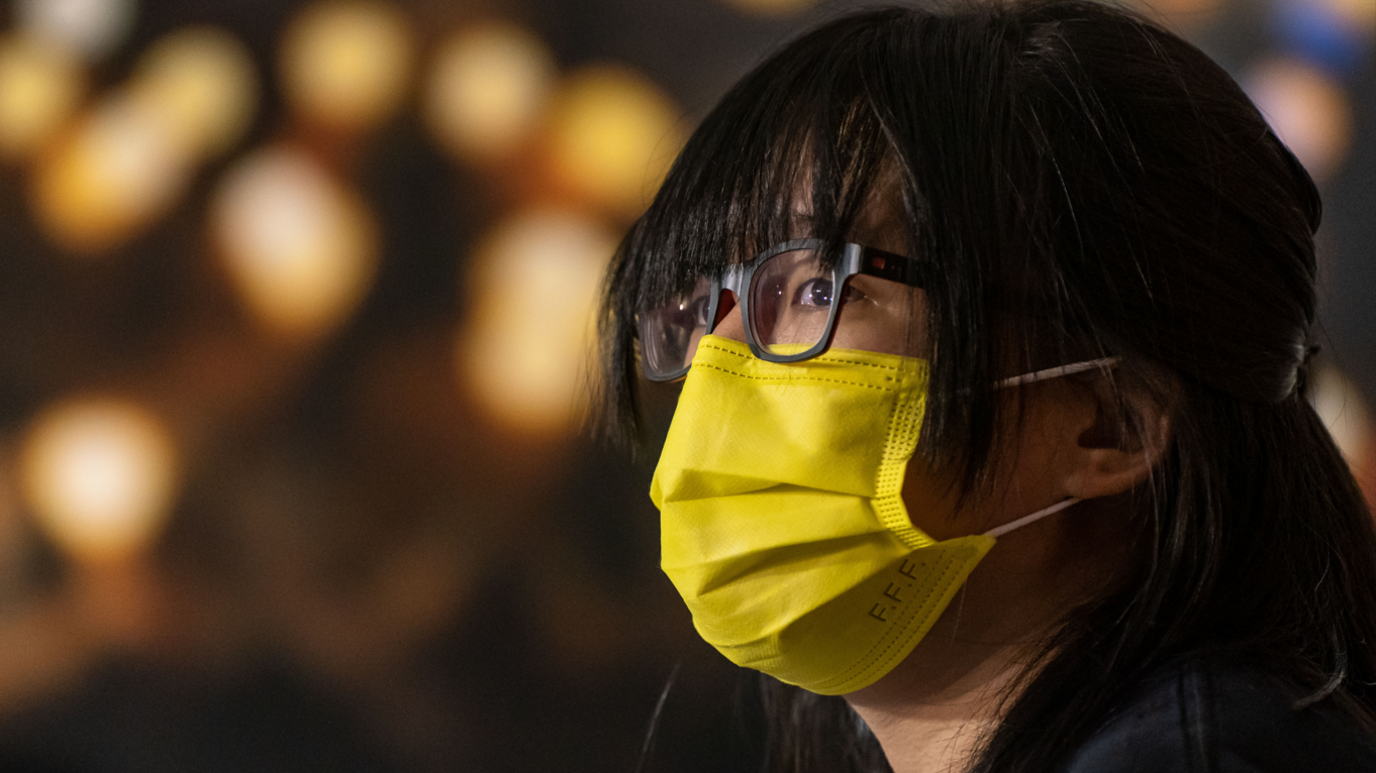Hong Kong arrests six for sedition under new law

Chow Hang Tung, a pro-democracy activist, was among the arrested
- Published
Hong Kong has announced its first arrests under a new security law - detaining six people for publishing social media posts which "incited hatred" against Beijing.
Five women and one man - including activist Chow Hang Tung - were arrested on Tuesday, it was announced.
Officials said the group were posting messages targeting a "sensitive date" - reported locally as the Tiananmen Square anniversary on 4 June.
If found guilty, the group could face up to seven years in prison under the harsher penalties brought in by the new law, known as Article 23.
The law, which was fast-tracked through Hong Kong's pro-Beijing parliament in March, covers treason, sedition and state secrets, and allows for trials to be held behind closed doors.
It expands on the national security law, imposed by Beijing in 2020.
Hong Kong's government says it is necessary for stability, but its introduction raised fears that civil liberties would be further eroded.
Human rights group Amnesty International said the arrests were a "shameful attempt at suppressing peaceful commemoration of the Tiananmen crackdown".
It called for the immediate release of those arrested, including Ms Chow, who was already in prison facing charges under the initial national security law.
A barrister, she is known for helping organise Tiananmen Square memorial events in the city. For decades, Hong Kong was the only Chinese city where these commemorations were allowed, under the city's semi-autonomous economic, political and legal set up - known as "one country, two systems" - established when the city was handed over to China by the UK in 1997.
But events remembering the 1989 incident, which saw China crush peaceful protests in Beijing with tanks and troops, were banned in 2020.
“Chow Hang Tung’s 1,000th day in detention on national security charges is next week - on 4 June, no less - and the authorities seem intent on ensuring that her fight for freedom is even longer by adding new so-called crimes to her file," said Amnesty’s China director, Sarah Brooks.
According to the South China Morning Post, Tuesday's charges related to a Facebook group where a series of posts had appeared remembering the previous events.
Secretary for Security Chris Tang - who confirmed they were Facebook posts - told reporters the subject was not the problem.
He said, quoted by the SCMP, that the accused had "incited hatred against the central government and our Hong Kong government and the judiciary".
"This incitement of hatred is the cause of the crime," he added.
- Published19 March
- Published5 June 2023